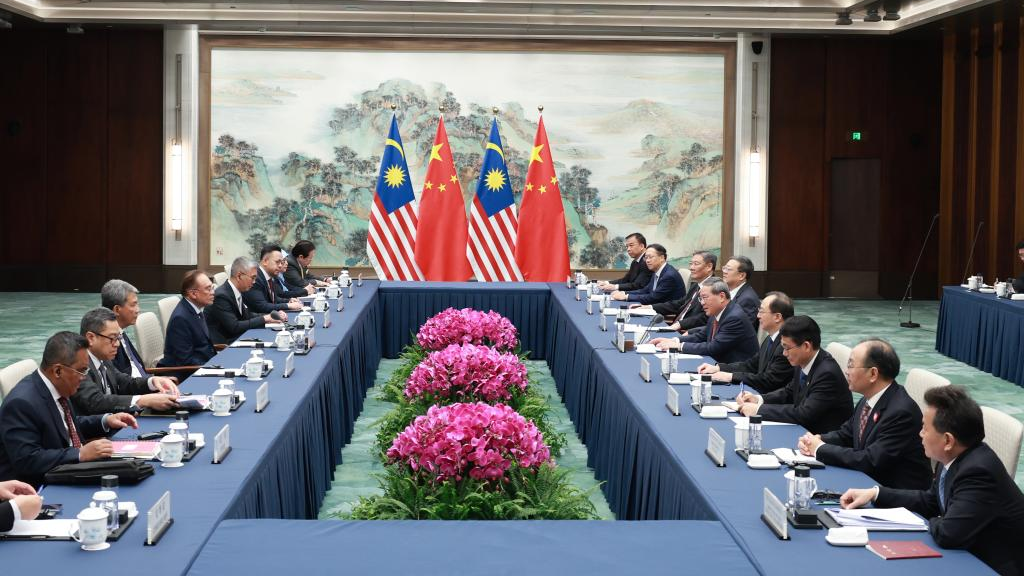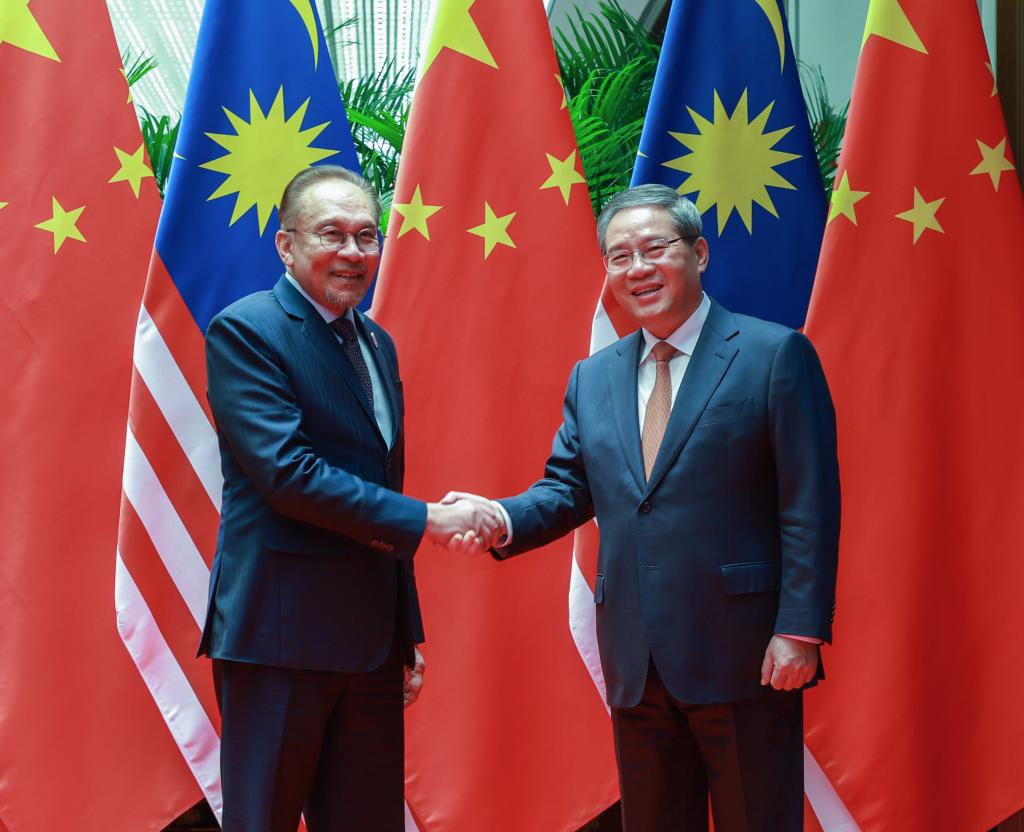
Chinese Premier Li Qiang meets with Malaysian Prime Minister Anwar Ibrahim, who is in China to attend the seventh China International Import Expo, in east China's Shanghai, November 5, 2024. [Photo/Xinhua]
By Kamal Uddin Mazumder
Notwithstanding intense Western pressure, Malaysia has made great strides toward exercising "strategic autonomy," especially in light of its expanding economic ties and comprehensive strategic partnerships with China. This is in line with the country's national interest and objective of becoming a regional trading hub.
For example, the third visit to China in two years by Malaysian Prime Minister Anwar Ibrahim not only demonstrates Malaysia's high appreciation and aspirations for cooperation with the world's second-largest economy and its biggest trading partner, but also expresses the Southeast Asian country's favorable response to China's great neighborhood diplomacy.
Anwar's trip to China will strengthen his resolve and set the course for a much closer friendship between China and Malaysia as he continues to emphasize the importance of fortifying connections, strategic cooperation and communication with China.
Regular high-level exchanges between the two nations have been furthering the historically special and ideal bilateral ties for the area, which are currently marked by mutual trust and understanding as well as high-quality and high-level collaboration in numerous fields.
With the complementary nature of the economies, the pursuit of modernization by both nations, the promise of strong cooperation in new energy and emerging industries, particularly electric vehicles (EV), the digital economy and the overall stability of supply chains, the China-ASEAN partnership for regional economic integrity, joint working for the Global South, the promotion of multilateralism and economic globalization and bilateral cooperation on major projects ranging from the East Coast Rail Link, Johor-Singapore Special Economic Zone, to the Kuala Lumpur-Singapore High-Speed Rail, Malaysia's economic future is becoming more intertwined with that of China.
In the nation, the Belt and Road Initiative's (BRI) projects have been helping to create jobs and improve infrastructure and boost economic development. Both nations have enacted reciprocal visa exemptions to encourage people-to-people interactions, and China backs Malaysia's quest to join BRICS in order to further multilateralism.
A major turning point was reached when China and Malaysia signed the BRI cooperation plan documents on November 5, which further cemented China's position as a development partner for Malaysian infrastructure modernization and development. An outline for strengthening Chinese-Malaysian relations in a variety of fields, from clean and green energy and tourism to technology, is provided by this document, which emphasizes the significance of more high-quality development and cooperation through policy coordination, better infrastructure connectivity and increased trade, investment and financial collaboration.
China and Malaysia are poised to further carry out the vision with tangible initiatives as the two nations decide to advance the development of a China-Malaysia community with a shared future.

Chinese Premier Li Qiang meets with Malaysian Prime Minister Anwar Ibrahim, who is in China to attend the seventh China International Import Expo, in east China's Shanghai, November 5, 2024. [Photo/Xinhua]
Malaysia will be able to become a sustainably developed, technologically sophisticated and green country thanks to its relationship with China in the new energy, digital and green economy.
One illustration can be drawn here. The productivity and efficiency of durian farms are being increased in Malaysia through assistance from China's cloud computing and the Internet of Things, demonstrating the potential of close collaboration in the emerging sector and new quality productive forces for Malaysia's Industry 4.0 and digital transformation. Partnerships with China in the aerospace industry are crucial to achieving the Aerospace Industry Blueprint 2030.
In addition, Malaysia's connection with China, particularly in the areas of commerce and services, will only get stronger, which is excellent for both Chinese-Malaysian relations and the overall stability of the regional economy. China's strong support for Malaysia to pursue its 2025 rotational chairmanship in ASEAN would hasten the conclusion of negotiations for the China-ASEAN Free Trade Area version 3.0 and promote the vigorous implementation of the Regional Comprehensive Economic Partnership.
By exploring new areas of cooperation in the emerging industries that the Chinese market offers, Malaysia prioritizes trade, economic cooperation and practical strategic partnerships. This demonstrates to other regional countries the importance of developing comprehensive economic ties with ASEAN's largest trade partner. Their capacity to cooperate and steer clear of differences has strengthened China's close connections with Southeast Asia, especially with Malaysia.
Anwar's unwillingness to choose a side in the big power competition is a sensible and practical one that is based on Malaysia's own growth, and the positive evolution of China-Malaysia relations should serve as a model for China-ASEAN relations.
Kamal Uddin Mazumder, a special commentator on current affairs for CGTN, is a banker from Bangladesh and also a strategic and global economic affairs analyst.

 中文
中文



